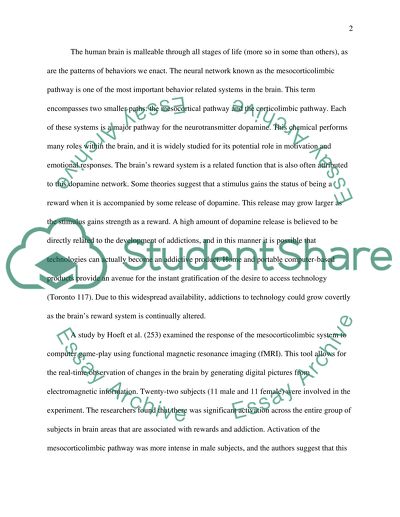Cite this document
(“Technology and the effects on the brain and the dopamine reward Research Paper”, n.d.)
Retrieved de https://studentshare.org/psychology/1435840-technology-and-the-effects-on-the-brain-and-the
Retrieved de https://studentshare.org/psychology/1435840-technology-and-the-effects-on-the-brain-and-the
(Technology and the Effects on the Brain and the Dopamine Reward Research Paper)
https://studentshare.org/psychology/1435840-technology-and-the-effects-on-the-brain-and-the.
https://studentshare.org/psychology/1435840-technology-and-the-effects-on-the-brain-and-the.
“Technology and the Effects on the Brain and the Dopamine Reward Research Paper”, n.d. https://studentshare.org/psychology/1435840-technology-and-the-effects-on-the-brain-and-the.


